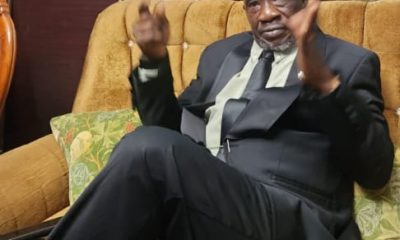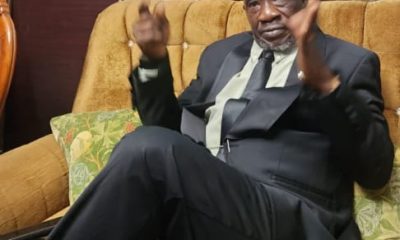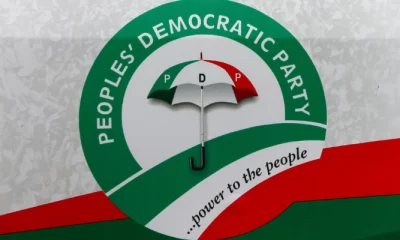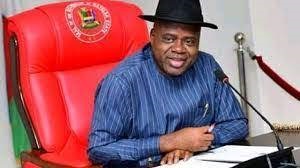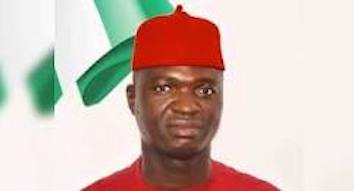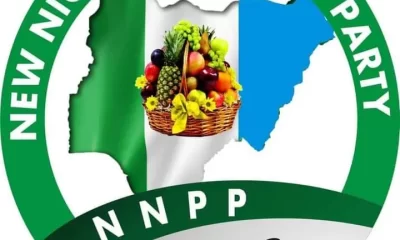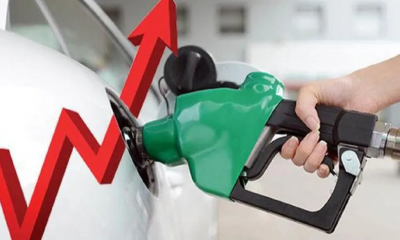OPINION
Flip Flop, Flip Flop
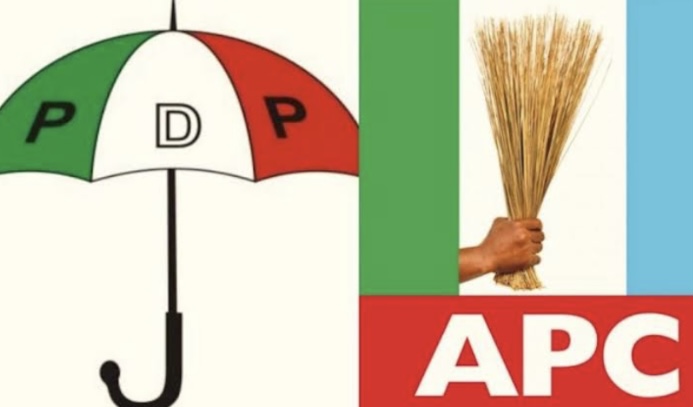
By Mahmud Jega
It is either a sign of confusion or a sign of maturity, depending upon the angle from which you look at it. The presidential race three weeks ago was a close three-way race with APC and PDP winning twelve states each while LP won eleven states and FCT. Many people thought the results of last weekend’s election for governors and State Assembly members will mirror the same pattern, but that was a major mistake.
Most closely watched was Lagos State. Lagos was the biggest shock of the February 25 election. Long consigned by reporters and analysts to be President-elect Bola Tinubu’s political fief, his APC party lost the state, very narrowly, even though he was at the head of the party’s presidential ticket. Loss of Lagos did not prevent Asiwaju from winning the election, nor would it prevent him from the exercise of presidential powers after May 29, but it promised to be a major personal, social and political discomfort. I say so because, as a student back in the Second Republic, I used to stand by the street in Sokoto to watch the spectacle whenever President Shehu Shagari visited his home state. The NPN state governors spared no effort to make it a political carnival. If an LP or PDP man is Governor of Lagos, would President Tinubu enjoy his home visits?
But that was not the main issue in Lagos at the weekend. Following LP’s victory in the state in the presidential election, some of its overzealous supporters, many of them based abroad, made the unguarded remark about Lagos being “No man’s land.” This generated the most hectic ethno-political mobilization seen in a governorship election in recent times. For the first time since Edo State in 1991 when the Oba of Benin, through his Chief Priest Nosakhare Isekhure, placed a curse on anyone who voted for Lucky Igbinedion, the son of “an enemy of the Oba,” we saw traditional chiefs in white robes performing rites on the streets of Lagos in order to prevent its “conquest” by hostile forces. In the event, APC’s votes from the previous election went up by 260,000, LP’s votes nosedived by 280,000 while PDP was virtually extinguished in the state.
Not only Lagos flipped. The two big Northern states of Kaduna and Katsina were also expected to flip. Though both are presently APC controlled, the party lost them in the presidential election, Katsina by a narrow margin but Kaduna by a wide margin. This time around the large chunk of Southern Kaduna votes that went for LP on February 25 was expected to return to PDP and help it to victory. But then, the populous local governments in the state’s northern parts broke for APC by wide margins. Unlike Kaduna which has sharp ethno-religious divides, Katsina State is ethno-religiously near-homogenous and APC’s candidate was winning in all local governments.
An important survivor was Oyo State Governor Seyi Makinde. He bucked the trend of the G-5 governors’ fate. Though he played with political fire by supporting a different party’s candidate in the presidential election, he easily bounced back yesterday and was re-elected with a wide margin. It was historically important because in the same Oyo State in 2003, when then Governor Lam Adesina joined other AD governors in supporting the PDP candidate Olusegun Obasanjo for president, he was promptly rewarded with a humiliating loss in the governorship election. Makinde played the same trick and got away with it, which in future will tempt others to try.
Not so lucky were his G-5 fellow travelers Governors Samuel Ortom of Benue, Ifeanyi Ugwuanyi of Enugu and Okezie Ikpeazu of Abia. As at yesterday evening, LP’s candidate Alex Otti was set to win in Abia, not a surprise since his party won in the state on February 25. APC candidate Reverend Hyacinth Alia was also well ahead in Benue, again not a surprise since his party won presidential elections in the state. Ortom was actually elected Benue’s governor on APC’s platform in 2015 but was re-elected on PDP’s platform in 2019. Social media wags were already saying last night that Ortom will blame Fulani herdsmen, his favorite bogey, if his party lost the governorship election.
That Governor Babagana Zulum was heading towards an easy re-election was not a surprise since Borno was the only North Eastern state that APC won in the presidential election. Tallies late afternoon yesterday also indicated Governor Abdulrahman Abdulrazaq of Kwara was headed for an easy victory, as were APC candidates in Jigawa and Niger states. Since the party won all these states on February 25, there was no flip there. There was however a big flip in Yobe, which APC lost to PDP on February 25 but whose candidate, Governor Mai Mala Buni appeared headed for an easy re-election last night. Yobe and Borno thereby maintained their record as the only two Northern states that have never been ruled by PDP since 1999. The only other such state in the country is Lagos.
Another flip was in the offing in Gombe State, where Governor Muhammad Inuwa Yahaya was on his way to getting re-elected despite his APC party’s defeat in the state in presidential election. These flips in Yobe and Gombe suggest that it was the homeboy factor that helped Atiku Abubakar to win most of the North East states in the presidential election, including these two that have APC-controlled state governments. APC’s victory in the presidential election would also be a factor that buoyed up party men and somewhat discouraged its opponents.
Also keenly awaited last night were results from the three states of the extreme North West corner, Sokoto, Kebbi and Zamfara. The latter two are APC controlled, but PDP won both Sokoto and Kebbi in the presidential election, the latter by a narrow margin of 3,000 votes. Senatorial election results in Sokoto, in which both Governor Aminu Tambuwal and top kingmaker Aliyu Wamakko are candidates, were all declared inconclusive. Partial results released last night indicated all three states were on course to flip from February 25, but it was yet to be seen.
There were no surprises in either Akwa Ibom or Ogun. In the former, PDP candidate Umo Eno won the election, confirming his party’s win in the presidential polls three weeks earlier. In Ogun, Governor Dapo Abiodun was declared winner after managing to survive a hot challenge from PDP candidate Ladi Adebutu. After winning the neighbouring Oyo State, sweeping State Assembly seats in Osun and doing so well in Ogun, it shows that PDP is alive and well in the South West, despite its virtual wipe out in Lagos, where LP took over its base.
One of the biggest battles was unfolding in Kano State last night. NNPP’s leader, presidential candidate and former state governor Rabi’u Musa Kwankwaso finished fourth in the presidential election but garnered nearly a million votes in Kano, two-thirds of his total haul. The party was fighting last night to consolidate its gains by winning the state governorship. Many analysts suspect that the governorship of Kano was the Kwankwasiyya movement’s top political goal in the first place. If Kwankwaso’s candidate Abba Kabir Yusuf, who is also his son-in-law, succeeds, it will be the godfather’s second sweet revenge in 12 years. The first was in 2011, when he won a second term to succeed Malam Ibrahim Shekarau, who defeated him at the polls in 2011. An NNPP victory this time around will be sweet revenge against Governor Abdullahi Umar Ganduje, Kwankwaso’s former deputy and anointed successor, with whom he later fell out. But the contest was still too close to call last night against Ganduje’s deputy and APC candidate, Nasir Gawuna.
Also keenly awaited last night was election result from Adamawa State, where APC’s Hajiya Aishatu Dahiru, better known as Binani, was in a push to become Nigeria’s first elected female governor ever. It was a very keen contest unfolding in the state, home state of PDP’s presidential candidate Atiku Abubakar. His loss in the presidential election could have boosted Binani’s confidence, though she was up against the incumbent governor, Ahmadu Umaru Fintiri of PDP.
By this morning, results from most of the states would probably be in, and the scale of the flip flops would become clearer.
OPINION
Buhari: Lessons in Leadership and Patriotism

By Ismail Abdulaziz
On July 13, retired Maj.-Gen. Muhammadu Buhari, former President of Nigeria, passed away after the mid-day prayers at a London Clinic at the ripe age of 82.Many testimonies about his life and times indicate a man of civility, discipline and patriotism not adding his avowed principle of living a Spartan life and commitment to eradication of corruption.
President Bola Tinubu, paid a glowing tribute. ‘’Buhari was to the very core, a patriot, a soldier, a statesman; his legacy of service and sacrifice endures.“He served Nigeria with unwavering dedication, first as a military leader from January 1984 to August 1985, and later as a democratically elected President from 2015 to 2023; duty, honour, and a deep commitment to the unity and progress of our nation defined his life.“He stood firm through the most turbulent times, leading with quiet strength, profound integrity, and an unshakable belief in Nigeria’s potential.“He championed discipline in public service, confronted corruption head-on, and placed the country above personal interest at every turn,’’ the president said.Similarly, the revered Islamic scholar, Mufti Ismail Menk, said Buhari was an upright man, who never missed his prayers and a very disciplined believer who served his people to the best of his ability.“His name was synonymous with integrity.“He was definitely one of those who made me develop a much better perception of Nigerians as a people,’’ he said.The U.S. Mission in Nigeria also condoled with Nigeria.“Buhari was a leader whose life was defined by service, discipline, and a commitment to restore integrity to public office.“His legacy includes his efforts to strengthen Nigeria’s democratic institutions,’’ it said.The Chinese embassy in Nigeria also expressed its condolences.‘’We mourn a resolute leader whose unwavering dedication to Nigeria’s unity and progress leaves an enduring legacy.“His pivotal contributions to advancing China-Nigeria relations will forever remain etched in our shared history,’’ it said.Former President Olusegun Obasanjo, who was also a former military Head of State like Buhari, said the late president was a comrade, a cool patriot, who as a soldier, played his role.“As an administrator, he played his role as an administrator; as a statesman, he played his role as a statesman.“At a time like this, we need the totality of the experience and what I may call statesmanship of all those who have had opportunities to run the affairs of this country to get us out of the situation we are in; he will be sorely missed; may his soul rest in perfect peace,” Obasanjo said.Tributes have also come in from the Ethiopian Prime Minister Abiy Ahmed Ali, Sierra Leone President Julius Maada Bio as well as World Trade Organisation Director-General Ngozi Okonjo-Iweala.During his campaign in 2015, something spectacular happened.The masses of Nigeria decided to contribute their widows’ mites for his success.What else can a human want than the general believe in his capacity and ability to lead them to the Promised Land?This singular act was a burden placed on him by the people to rectify the past.Analysts say the history of Nigeria will be replete with the roles Buhari played during his three terms leading the country.First, as a military head of state and subsequently, as a democratically elected president between 2015 and 2023.For history to be kind to him, the testimonies of those around him during his time will shape the final options.As an elder statesman, Ibrahim Badamasi Babangida once said: “History will be kind to you for taking a decision, but will never be kind to you for not taking a decision.”Buhari accepted most of the mistakes he took while serving the people as exemplified in one of his statements in the course of his handing over the reign of leadership to President Tinubu.“Whoever thought that there has been some form of injustice on him we are all humans, there is no doubt I hurt some people, and I wish they would pardon me and those who think that I have hurt them, please pardon me.”The man that peacefully handed over power to Buhari, former President Goodluck Jonathan, has some comforting words.‘’He will be remembered as a courageous leader, a disciplined officer, and a committed public servant who made considerable contributions towards the peace and progress of our dear nation.“The late President was deeply admired across the strata of society for his decency, integrity and exemplary life of service.“As a leader, he was selfless in his commitment to his duty and served the country with character and a deep sense of patriotism.‘’In his passing, Nigeria has lost one of its foremost leaders, and I have lost a respected colleague and elder.“His legacy will continue to endure in the hearts of all who value sacrifice, integrity, perseverance and devotion to national ethos,’’ Jonathan said.Buhari was born on Dec. 17, 1942 in Daura, Katsina State to Adamu and Zulaiha Buhari.He was raised by his mother, following the death of his father when he was about four years old; he had his primary school education in Daura and Maidua from 1948 to 1952, before proceeding to Katsina Middle School in 1953.He joined the Nigerian Army in 1961 when he was admitted to the Nigerian Military Training College, Kaduna.Buhari underwent Officer Cadets training at Mons Officer Cadet School in Aldershot, England from 1962 to 1963, and was commissioned as Second Lieutenant in January, 1963.He attended the Nigerian Military College, Kaduna for the Platoon Commanders’ Course from 1963-1964Buoyed by a deep sense of patriotism and commitment to national service, Buhari entered politics in 2003, following Nigeria’s return to a democratic dispensation in 1999.Buhari joined the All Nigeria People’s Party (ANPP) and contested the presidential election on its platform that year.He lost to the presidential candidate of the People’s Democratic Party (PDP) Olusegun Obasanjo.Undeterred by defeat, Buhari continued his political struggle, and on Dec. 18, 2006, he emerged as the consensus presidential candidate of the ANPP for the 2007 elections.His main challenger in the April 2007 presidential polls was the ruling PDP candidate, Umaru Yar’Adua.In the election, Buhari officially scored 18 percent of the total votes cast, against 70 percent for Yar’Adua.In March 2010, Buhari left the ANPP and formed, with some of his supporters, the Congress for Progressive Change (CPC).Buhari was nominated as the CPC presidential candidate on April 16, 2011 for that year’s general election.He ran against the then incumbent, President Jonathan of the ruling PDP, Malam Nuhu Ribadu of the Action Congress of Nigeria (ACN), Ibrahim Shekarau of the ANPP, and other candidates of smaller parties.Using the platform of the CPC, a newly formed party, Buhari was able to garner 12, 214, 853 votes, coming second to Goodluck Jonathan of the Peoples Democratic Party(PDP), who polled 22, 495, 197 votes.In 2015, under the platform of the All Progressives Congress (APC), Buhari won the presidential elections of March 28, defeating the incumbent Jonathan of PDP.He was sworn into Office as President, Commander-In Chief of the Armed Forces, and Federal Republic of Nigeria on May 29, 2015.After eight years in office, Buhari ensured a smooth transition process; in May 29, 2023, he handed over power to President Bola Tinubu who was also elected under the platform of APC in the February, 2023 presidential election.(NAN)OPINION
Naira Spraying Crackdown: Cultural Policing or Economic Necessity?
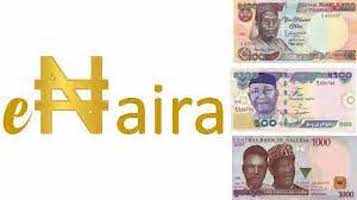
In recent months, Lagos has witnessed a sharp intensification of the crackdown on spraying naira notes at social events, with the Economic and Financial Crimes Commission leading enforcement efforts to uphold currency integrity.In April 2025, popular Lagos socialite Emeka Okonkwo, known as E-Money, was arrested for allegedly spraying both naira and US dollars at public gatherings, an act that violates Nigeria’s currency laws.
In the same month, two social media influencers, Tobilola Olamide (TobiNation) and Peter Olaitan (TDollar), were convicted and sentenced to six months imprisonment or a fine for spraying naira notes at a Lagos event, based on viral TikTok videos that triggered EFCC investigations. These cases underscore the government’s renewed commitment to enforcing the Central Bank Act provisions against currency abuse, amid growing concerns over inflation and economic stability.Beyond Lagos, notable Nigerians have also faced arrest and conviction for spraying naira under the Central Bank Act. Idris Okuneye (Bobrisky) was convicted in April 2024 and sentenced to six months’ imprisonment after his March arrest for spraying at Lagos events.Actress Oluwadarasimi Omoseyin was arrested in February 2023 for spraying and stepping on new naira notes at a wedding in Lagos, receiving a six-month jail term with an option of a fine. A makeup artist, Abdullahi Huseini (Amuscap), was sentenced to six months’ imprisonment in Kano for spraying at his wedding. Cubana Chief Priest was also arrested, etc.We praise the EFCC and the government for doing a great job of protecting the integrity of the naira by ensuring that abusers are punished. We wish and pray that the same swiftness and assurance of convictions be visited on other issues, such as political corruption and insecurity.According to a report by Daily Post 2021, Mr Akin Adewale from a first-generation bank said it was good so that money would not be devalued. What the CBN said was that it spent a lot of money printing it, and the cost is passed on to the economy in the long run. He said, “If the money is rough or torn, its life span is reduced, and printing becomes more frequent, which leads to inflation.”Any person who has been in the country since 2021 will know that the devaluation of the Nigerian currency is closely related to inflation.But what about the cultural significance of spraying money among Nigerian communities?To criminalise spraying money without acknowledging its cultural weight risks violating the social rhythms that bind communities together.In Yoruba culture, spraying money is a revered symbol of honour and respect. It is a way to publicly celebrate and support the success and status of loved ones, affirming social bonds and communal pride. For the Igbo, spraying is an expression of joy and solidarity, a ritual that marks milestones and reinforces communal support. Among the Hausa-Fulani, though less common, similar acts of generosity during celebrations symbolise goodwill and social harmony. The same is also true of many other ethnic groups in the country.Beyond mere festivity, spraying money is a powerful social symbol; it represents abundance, generosity, and the collective sharing of fortune. It is a language of respect, a way to uplift individuals while strengthening community ties. To clamp down on this practice without sensitivity is to risk eroding a cherished cultural expression that nurtures social cohesion.No doubt, many countries have laws prohibiting the mutilation or defacement of currency to protect their integrity. Singapore, Sri Lanka, Australia, the United States, the United Kingdom, and Canada all enforce penalties, ranging from fines to imprisonment, against damaging their money.These regulations reflect a global consensus that currency is both a medium of exchange and a national symbol essential for economic stability. It means Nigeria’s Central Bank Act similarly criminalises currency abuse, including spraying naira notes, to safeguard the naira in line with the value that other nations of the world uphold.By implication, therefore, the culture of enjoying money spraying as a social bonding avenue is an aberration that followed normal political impunity in Nigeria. It’s not really a piece of culture rooted in African cosmology.Political and class dimensions also raise concerns about selective justice and unequal treatment of the elite versus ordinary people. Many countries indeed criminalise the mutilation or defacement of currency to protect its integrity, and Nigeria’s Central Bank Act follows this global practice by outlawing acts like spraying naira notes. However, this raises a deeper question: is criminalising currency abuse more important than implementing policies that genuinely uplift the lives of Nigerians?One must wonder whether the Nigerian government’s crackdown is driven by a sincere commitment to economic reform or simply an attempt to imitate other nations without addressing more pressing issues. It is normal for governments to prioritise certain policies, but if the focus is on enforcing currency laws, then why has there been so little progress in prosecuting terrorists, corrupt officials, or those who steal public funds? Why are governors and government officials rarely held accountable under the law, including the Bank Act?For instance, an online report showed that Thomas Ekpemupolo, known as Tompolo, a former Niger Delta militant leader, was caught in a viral video from his April 54th birthday celebration dancing while N1,000 notes were sprayed and stepped on, actions considered naira abuse under Nigerian law.Following public outcry, the EFCC vowed in May to investigate and hold him accountable, stressing, “Nobody is above the law.” As of late June, there has been no public update on his arrest or arraignment. If the case of the former Niger Delta militant leader could go this way, how about when a governor or senator is seen committing such an offence? Yet the government ought to look into a balanced approach to naira spraying.No one is in support of mutilating the currency, but a balanced approach to the naira spraying crackdown could help preserve cultural heritage while protecting the currency’s integrity. One solution is public education to raise awareness about the legal restrictions and the economic impact of currency mutilation, encouraging celebrants to handle naira notes with care rather than abandoning the tradition altogether.Additionally, regulated practices could be established where spraying is done respectfully and with minimal damage, such as using designated fresh notes or limiting the amount sprayed, distinguishing between cultural honour and currency abuse. This middle ground respects the ritual’s social significance while aligning with legal and economic concerns.Outright bans risk alienating communities and eroding cultural identity, whereas education, innovation, and sensible regulation offer a path to harmonise tradition with the imperative to protect Nigeria’s fragile economy.Most importantly, instead of merely emphasising the sanctity of the naira, Nigeria should strive to uphold the true rule of law, ensuring justice, fighting corruption, and protecting citizens, just as many other countries do. Without this broader commitment, focusing solely on currency integrity risks appearing superficial and disconnected from the urgent needs of the people.Dr Mbamalu, a Jefferson Journalism Fellow, member of the Nigerian Guild of Editors and media consultant, is the publisher of Prime Business AfricaOPINION
Two Sides of Late Major General Muhammadu Buhari

The late Major General Muhammadu Buhari, who famously overthrew the government of Alhaji Shehu Shagari, struck like a thunderbolt. His death, announced yesterday, July 13, 2025, shocked the nation, especially as he appeared healthier than when he was elected President of Nigeria in 2015.
In reflecting on his life and legacy, it is essential to compare the two distinct eras of Buhari’s leadership: first as a military ruler and later as a democratically elected president. As a military president, Buhari was often perceived as a no-nonsense leader who implemented significant reforms that impacted the political, economic, and social landscape of Nigeria. His initiatives included:i. War Against Indiscipline;ii. Import Substitution Industrialization Policy;iii. Go Back to Land Programme; andiv. Foreign Policy InitiativesThe announcement of his coup triggered panic among second Republic politicians, who went into hiding, fearing the unknown. Their concerns were not unfounded; the brutal orders that followed forced many into detention without trial for extended periods. While these policies are attributed to General Buhari, some believe they were largely orchestrated by General Tunde Idiagbon, his Chief of Staff, a bold and incorruptible officer who played a crucial role in implementing Buhari’s agenda.Ambassador Lawal Rafindadi, the Director General of the National Security Organization (NSO), also significantly influenced Buhari’s policies. Under his leadership, the NSO detained numerous Nigerians and a few foreigners without trial, while also investigating high-profile corruption cases, including that of Umaru Dikko.Buhari’s name incited a mix of fear and admiration among Nigerians; while his policies benefitted many, they caused distress for others. There is a prevailing belief that Idiagbon and Rafindadi were the true engines of governance during Buhari’s regime. His subsequent overthrow by General Ibrahim Babangida and the ensuing years of incarceration were reminiscent of the betrayal faced by Julius Caesar.When Buhari returned to power as the elected president in 2015, many Nigerians expressed hope that he would revive the transformative policies of his military rule. However, the reality was starkly different; the economy continued to plummet, corruption surged, and social cohesion deteriorated.This raises the question: Were the key figures who had previously supported Buhari—such as Tunde Idiagbon and Lawal Rafindadi—absent during his second tenure? Observing Nigeria’s political and economic landscape at the time, one might conclude that the nation had made progress in governance compared to Buhari’s first administration. Yet, familiar advisers from his earlier days remained influential, including figures like Malam Maman Daura, the late Mamud Tukur, Alhaji Magaji Danbatta, Professor Ango Abdullahi, and General Aliyu Gusau.Some critics have suggested that Buhari’s second coming could be summed up by the adage “once bitten, twice shy.” Rumor has it he confided to close friends that, in his youth, his aspirations to save Nigeria were thwarted; thus, he was unwilling to dedicate his later years to a country that had not recognized his contributions.Despite this backdrop, Buhari’s integrity remained intact. He personally rejected corruption; however, it appeared he overlooked the corrupt practices of those around him. His presence will be missed as a Nigerian statesman capable of fostering stability in various regions. His immediate family and allies will mourn his passing, as will many Nigerians who knew him well.As we ponder Buhari’s legacy, it remains unclear how history will ultimately judge him. Will he be remembered with fondness or skepticism? Only time will tell, as historians analyze his contributions and their impact on Nigeria.Simon Shango MFR writes from Abuja
